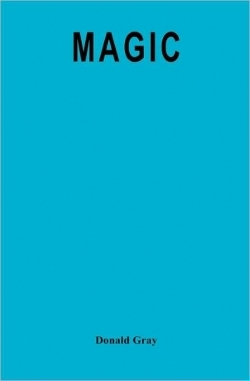
Magic
In the world of Magic, powerful beings, called Adepts, have always existed side by side with humanity. The Adepts are divided into two groups, the “Elitists” and the “Humanists,” and they are able to perform tasks that “Normals” (average human beings) consider to be psychic feats, like telekinesis, mind reading, and teleportation. The Humanists believe that they are no better than anyone else, including the Normals, while the Elitists believe that they are superior and should be running the world.
The story is told from the perspective of Will Harris, who learns when he comes of age that he has the potential to be a very powerful Adept. Will’s power and intelligence is so great that he advances quickly as an Adept. He becomes a Master Healer and through creativity, perseverance, and mathematical brilliance, he helps uncover a lost history and ancient technology that is instrumental in radically changing the Adept and Human world for the better. He also narrates other momentous events from his life, including meeting his soul mate and wife, Samantha, and his exploits with his best friend Rex.
The plot of Magic may sound like it is derivative of fantasy series like Harry Potter and Percy Jackson, but Donald Gray has created a world where his characters are able to perform “magic” that is based in science not the supernatural. During his training as an Adept, Will’s mentor Theodore explains this concept to Will: “Let’s get a little theoretical stuff out of the way first,” he says. “Porting is really short for teleporting. What you are doing when you port is moving an object from one place to another. It is important to note that in doing this, all laws of physics must be observed.”
Gray’s approach to magic without supernatural elements is unique, but the whole idea of magic is based on the belief that something exists outside the realm of reality. In the Harry Potter novels, for example, Rowling provides a perfect balance of escapist fiction and a realistic coming-of-age story. The magic in her novels create a wonderful conflict between good and evil, which stimulates growth of the characters and captivates readers through seven huge tomes. Magic does not live up to its name because the situations that cause conflict in the protagonist’s life are usually resolved quickly and without real hardship for the characters, so there is no emotional investment required from the readers. Even a scene where Rex is kidnapped by a secret government faction is bland; his rescue is completed in just a few sentences. Other scenarios are cutesy and read like television comedies of the fifties and sixties where the world is black and white and no gray area exists.
Magic contains moments of originality that will capture the reader’s attention, and the author demonstrates an excellent command of language. But while the ideas behind this story are vibrant, bold, and new, the characters are pushed through their paces without real conflict for growth, leaving the novel flavorless and predictable.
Reviewed by
Lee Gooden
Disclosure: This article is not an endorsement, but a review. The publisher of this book provided free copies of the book and paid a small fee to have their book reviewed by a professional reviewer. Foreword Reviews and Clarion Reviews make no guarantee that the publisher will receive a positive review. Foreword Magazine, Inc. is disclosing this in accordance with the Federal Trade Commission’s 16 CFR, Part 255.
